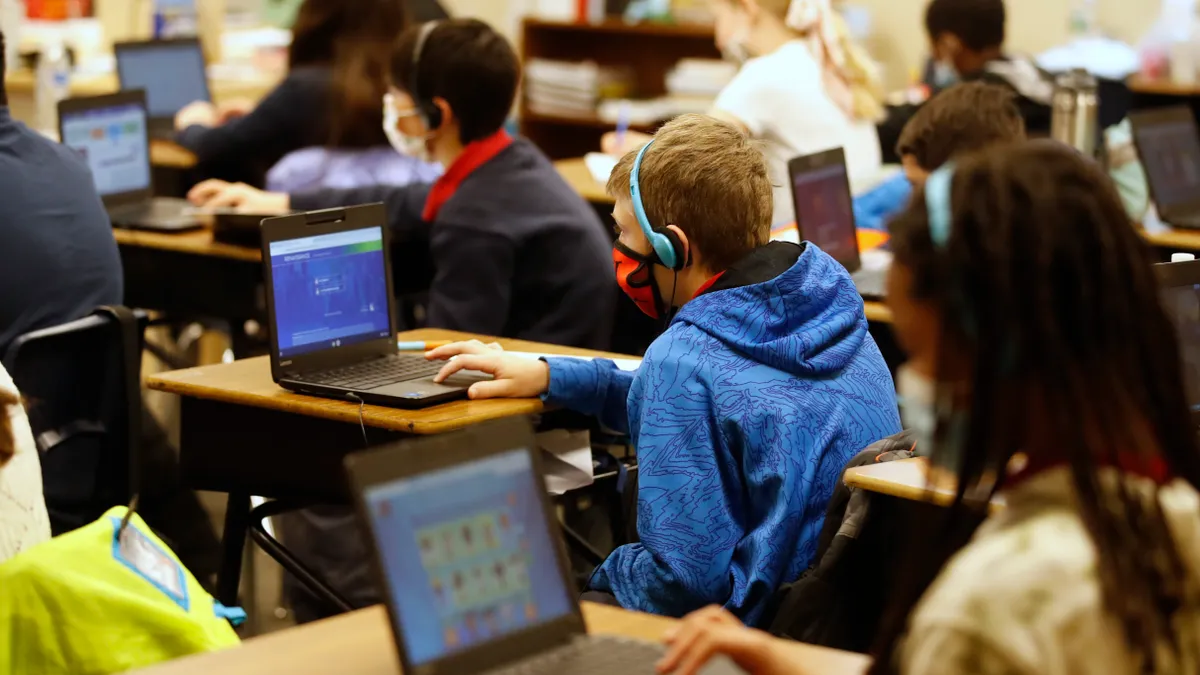Dive Brief:
- With the exponential increase in school-issued devices due to the COVID-19 pandemic comes the opportunity to teach students the importance of taking steps to safeguard their data privacy, and experts suggests school leaders should warn students to erase or delete anything they don’t want school officials to see prior to returning devices to school IT departments, EdTech reports.
- Though school-issued devices don’t fall under the student privacy umbrella, warning families to remove any private information will prevent unintentional sharing. Students should also be taught how to clear their digital histories and clean their hard drives, and IT professionals can avoid accidentally running across potentially embarrassing or concerning documents by wiping the devices clean without ever logging in.
- Students should also be reminded that anything they store in school-linked cloud accounts can be seen by school officials. Lessons on clearing cloud storage accounts will further protect students from unintentionally sharing private information.
Dive Insight:
Today’s students are growing up in a world of passwords and cloud storage, living under the threat that making the wrong digital privacy move can impact their lives forever. There are major consequences for technology missteps, and teaching students how to manage their digital privacy sooner rather than later provides skills that will remain critical throughout their adult lives. For starters, students — and adults — should assess their digital footprints a few times a year to ensure their cloud accounts, public devices and social media presence are clean.
There are several digital citizenship lesson plans teachers can access, including those from Google’s Applied Digital Skills and Interland, as well as Common Sense Media.
Though schools have long been at risk for data breaches, distance learning created an even more harrowing digital privacy environment. During the pandemic, the sudden transition to a digital environment led in some cases to hasty adoption of apps and hardware that may not have been fully vetted to protect students’ information. This compounded a problem that existed prior to the pandemic, when tools like Alexa that weren't created with the intention of classroom use were sometimes incorporated without full understanding of privacy risks.
A report from the Center for Democracy and Technology found half of teachers surveyed had no training to protect data privacy. Only four in 10 parents reported schools had discussed data protection with them.







 Dive Awards
Dive Awards






